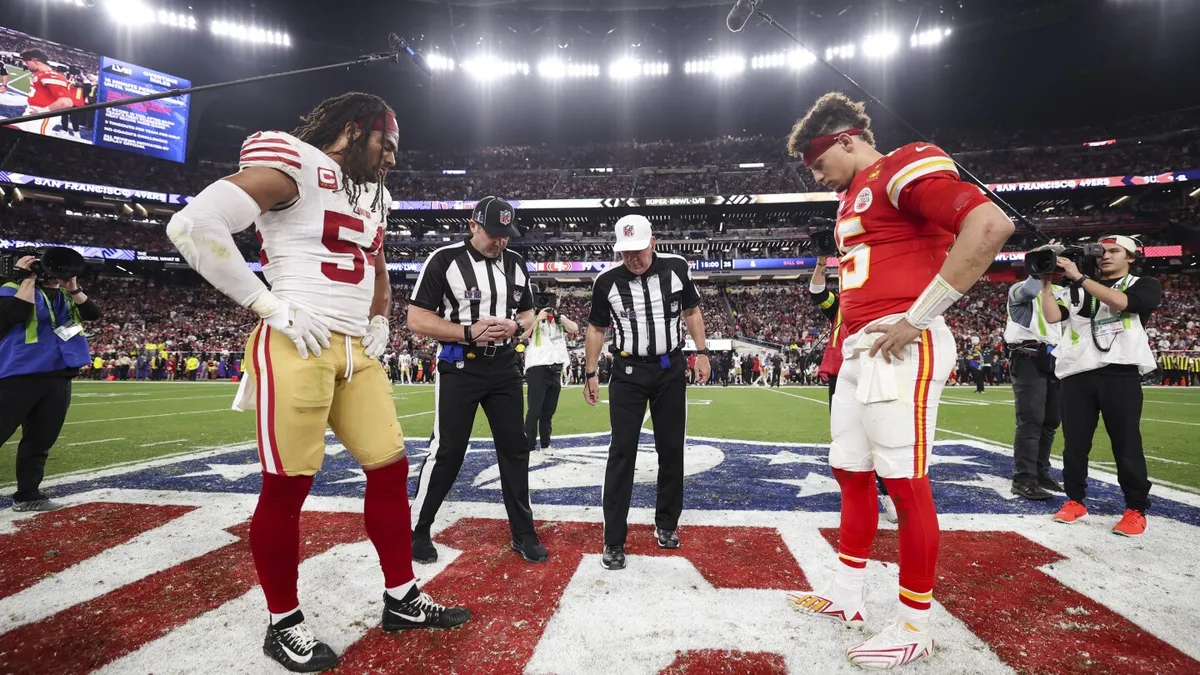
The recent discussions surrounding the Philadelphia Eagles’ trademark play have overshadowed other significant rule changes proposed for the NFL. One of these changes, notably submitted by the Eagles, aims to revise the structure of regular-season overtime to ensure that both teams have a fair opportunity to possess the ball. This proposal has passed but has not been paired with an extension of the overtime period from 10 to 15 minutes.
With the overtime period remaining at 10 minutes, the dynamics of team strategy change significantly. Teams that win the coin toss are more inclined to take the ball first, aiming to score quickly. This strategy often leads to a slower-paced drive, as the winning team attempts to leave minimal time for the opposing team to respond. Conversely, if overtime were extended to 15 minutes, the winning team would likely opt to kick off, similar to the strategy observed by the 49ers in Super Bowl LVIII.
As the clock ticks down in overtime, an unintended consequence may arise. When the team receiving the kickoff approaches the end zone, their defense might intentionally allow the opposing offense to score a touchdown. This tactic would grant the kicking team more time to respond and potentially win the game with a two-point conversion. This scenario presents a peculiar dynamic where the team with the ball may hesitate to score, creating an awkward and convoluted situation.
Alternatively, as noted by Chris Simms on PFT Live, defenses might adopt a more aggressive approach during the opening drive. Understanding the risks involved, they could decide to take chances, knowing that a touchdown scored by the offense would still provide them an opportunity to tie or win the game with a two-point conversion.
Should the overtime period be extended to 15 minutes, both teams would receive a genuine opportunity to score. If both teams manage to score touchdowns, the team that scores second would face a crucial decision: go for the win with a two-point conversion or play it safe and allow the remainder of the period to unfold under sudden-death rules. The prevailing thought is that the team scoring the second touchdown would likely opt for the win, adding another layer of strategy to the overtime format.
Another critical aspect of this proposed change is the desire to align regular-season overtime rules with those in the postseason. The current trend indicates that the team winning the toss in regular-season overtime will typically choose to receive, while in postseason overtime, they will more likely opt to kick. This discrepancy means that the two formats are not equivalent, potentially leading to confusion and inconsistency in game strategy.
As the NFL observes the outcomes of overtime games, especially those where the team losing the coin toss has minimal time to respond, there may be pressure to adjust the overtime rules. If these situations continue to unfold, it’s likely that league owners will consider extending the overtime period to 15 minutes, ensuring a fairer chance for both teams to compete effectively.